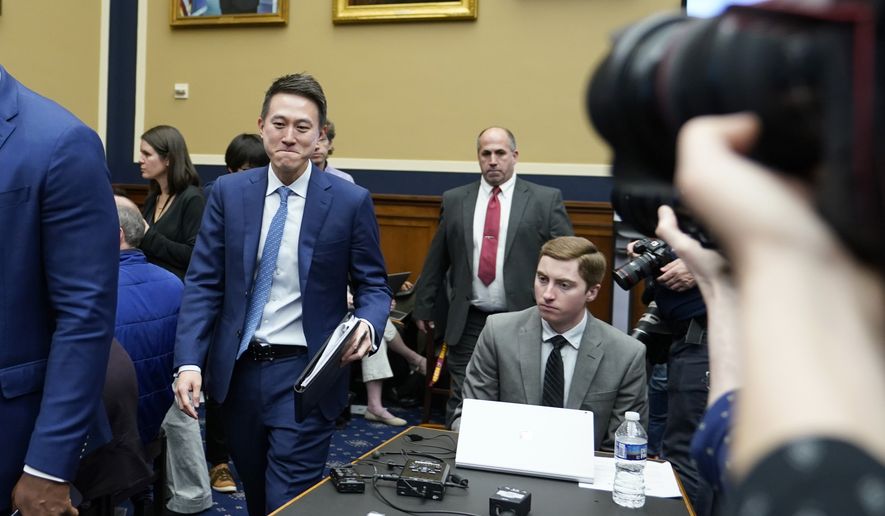TikTok acknowledged collecting the precise location information of U.S. users despite previously downplaying concerns about how it tracked people’s physical location.
TikTok CEO Shou Zi Chew told lawmakers that his China-founded app gathered location information on Americans a few years ago and older versions of the app may still monitor people’s location.
Rep. Debbie Dingell, Michigan Democrat, pressed Mr. Chew on Thursday to explain whether his written testimony’s reference to how current versions of TikTok’s app operate meant older versions treated people’s locational info differently.
Mr. Chew’s written testimony said current versions of TikTok’s app do not collect precise or approximate GPS information from U.S. users.
“Have any prior versions of TikTok’s app collected precise GPS information from U.S. users?” Ms. Dingell said at a House Energy and Commerce Committee hearing. “Yes or no?”
“Yes, from back in 2020, about three years ago,” Mr. Chew said.
“Are there currently TikTok users who still hold old versions of the app that collect precise GPS information from U.S. users?” Ms. Dingell said. “Yes or no?”
“There could be but that’s a small percentage,” Mr. Chew said.
Mr. Chew’s message is a sharp departure from the aggressive invective TikTok directed at reporting about the app’s tracking practices.
TikTok previously disputed an October 2022 Forbes report saying a China-based team at TikTok’s parent company ByteDance planned to use TikTok to monitor the personal location information of Americans.
The report said the ByteDance team planned to gather locational information for surveillance purposes rather than for such uses as targeted advertisements.
TikTok pushed back on the report, ripping its “rigor and journalistic integrity” on Twitter in October 2022.
“Forbes chose not to include the portion of our statement that disproved the feasibility of its core allegation: TikTok does not collect precise GPS location information from U.S. users, meaning TikTok could not monitor U.S. users in the way the article suggested,” the company said on Twitter via its @TikTokComms account.
Mr. Chew’s answer to Ms. Dingell said TikTok has collected the precise GPS location information on people in the U.S. and may continue to do so for people who have an outdated version of the app on their devices.
TikTok’s support webpage on its use of location information says it collects “approximate location information” from people’s devices or computer networks, through such things as a SIM card or IP address.
TikTok’s webpage said it may gather GPS data if TikTok users enable “Location Services” but TikTok said the location services feature “may not be available in all regions, including the U.S. and South Korea.”
The TikTok executive’s testimony on Thursday has raised fresh concerns about what user data is accessible to the app’s China-founded parent company ByteDance.
China’s policies of civil-military fusion force businesses to work with the communist government, making any location information gathered by companies subject to Chinese law and thus vulnerable to the communist country’s officials.
Mr. Chew said in written testimony he has not shared U.S. user data with the Chinese government nor received any request to share such data.
Engineers in China had access to U.S. data between September 2021 and January 2022, according to leaked audio of more than 80 internal TikTok meetings accessed by BuzzFeed last year.
ByteDance later said it fired four employees who accessed data on journalists from BuzzFeed News and The Financial Times while tracing a leak of confidential information.
Location information is not the only data that people have concerns about TikTok tracking.
More than half of the 50 U.S. states have governmental websites containing web-tracking code made by ByteDance, according to a Wall Street Journal report published this week, citing new research shared from the Toronto-based company Feroot Security.
• This story is based in part on wire service reports.
• Ryan Lovelace can be reached at rlovelace@washingtontimes.com.




Please read our comment policy before commenting.